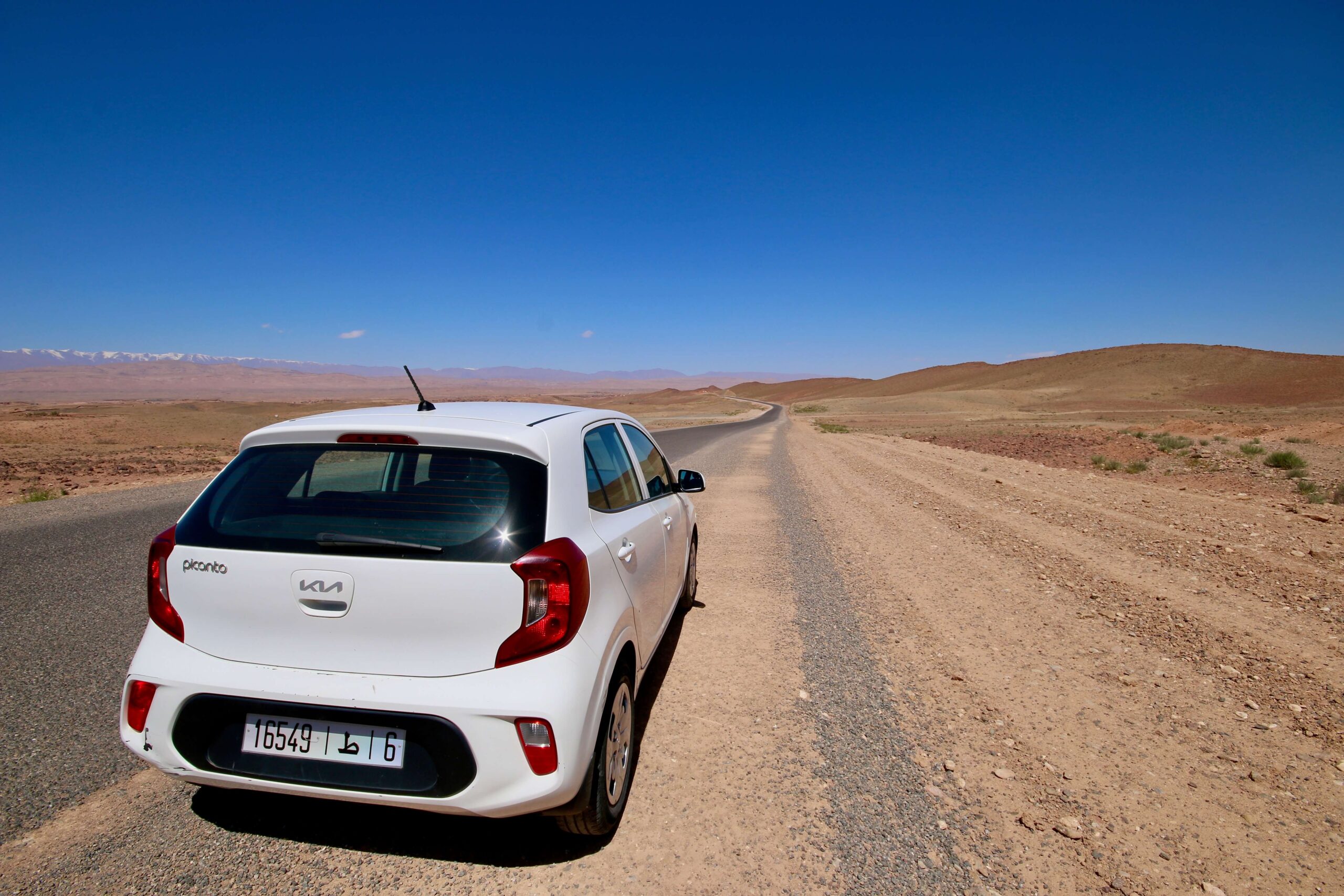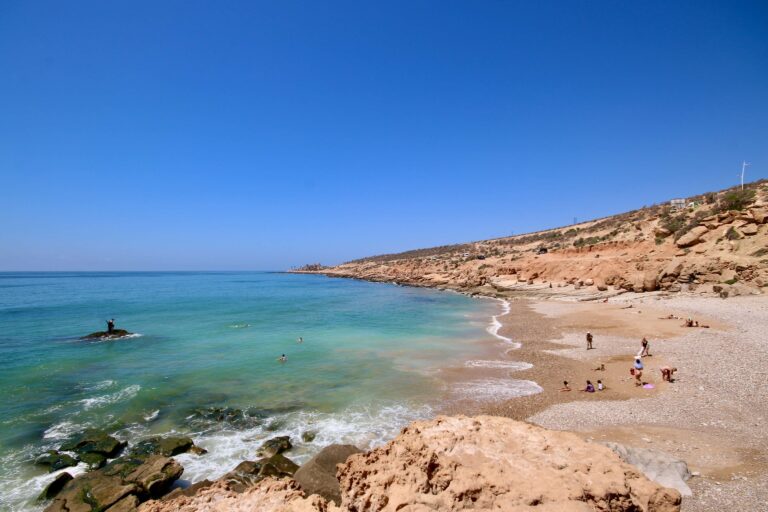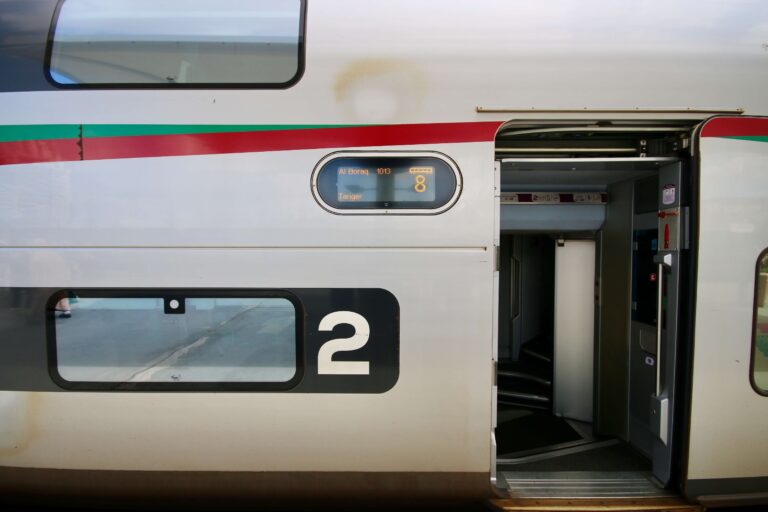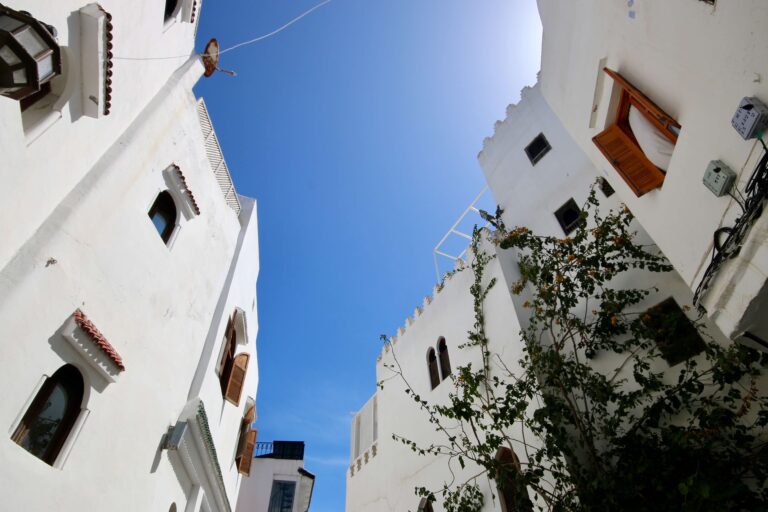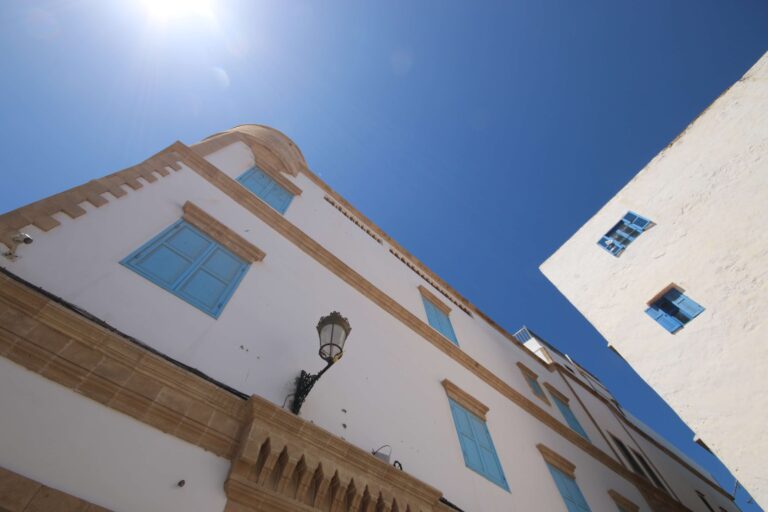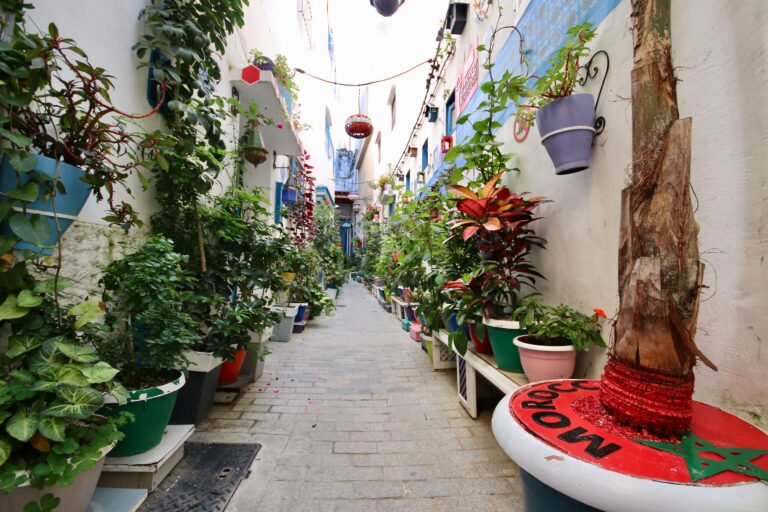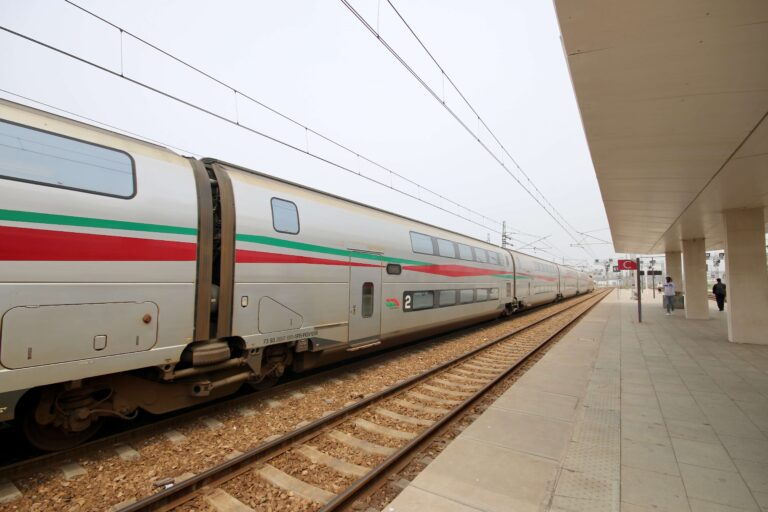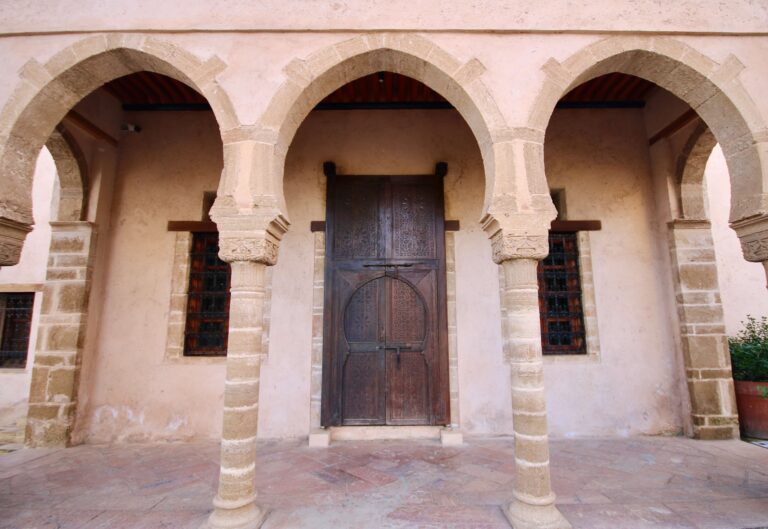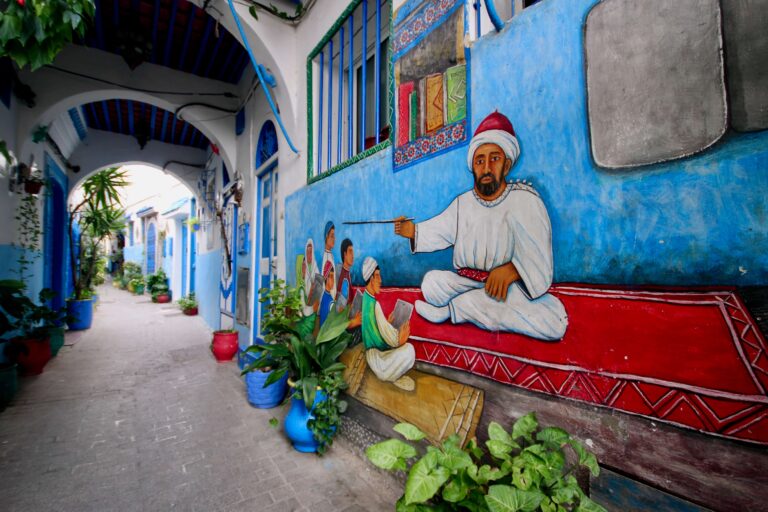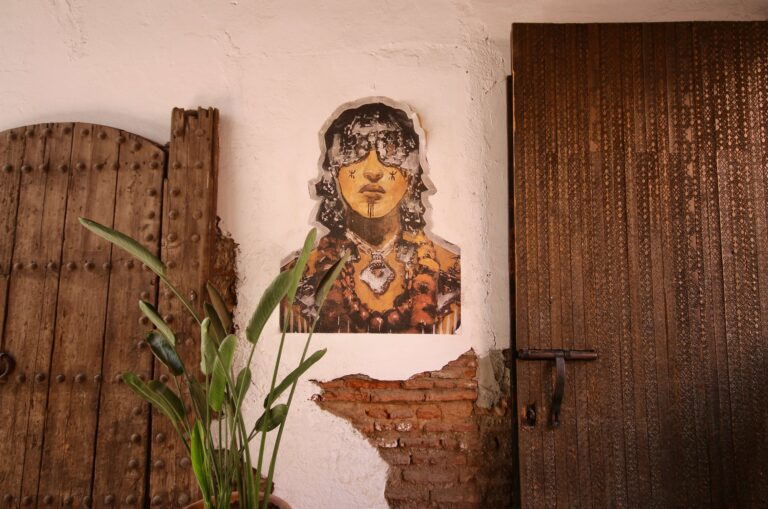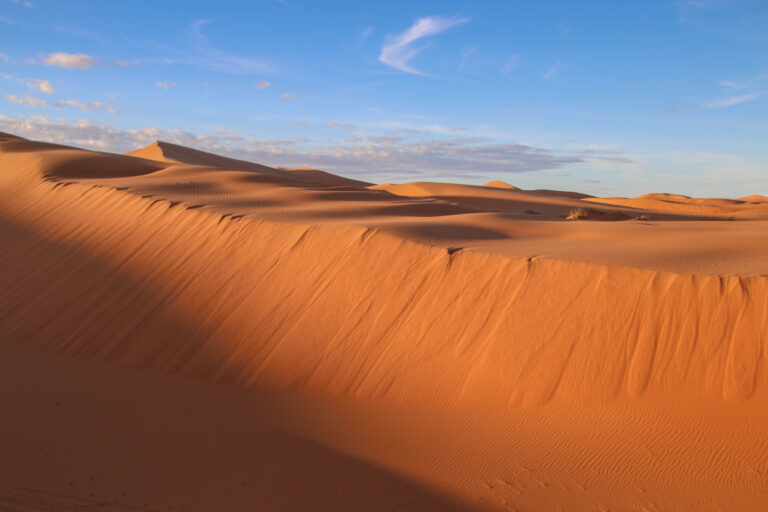Renting a Car and Driving in Morocco as a Solo Traveller: Is it Safe?
Driving in Morocco as a solo traveller can be an incredibly rewarding way to explore the country. It offers experiences you couldn’t have otherwise.
From navigating the winding roads of the Atlas Mountains to finding hidden beaches along the Atlantic coast, having your own set of wheels gives you the freedom and flexibility to get off the beaten path. Ultimately, you can explore Morocco at your own pace.
However, driving in an unfamiliar country does come with its challenges, especially for those going it alone. Traffic in cities like Marrakech and Casablanca can be chaotic. And in rural areas, you may encounter unpaved roads with serious potholes, not to mention wandering livestock you have to dodge.
While I have really enjoyed driving around Morocco as a solo traveller, I’m not going to say it is for everyone. I’ve had to swerve suddenly around a hairpin bend to avoid a toppled truck.
On another occasion, I followed my GPS down a paved road that gradually disintegrated into nothing. The potholes and erosion were that bad!
Every time I pick up a rental car in Morocco for the first time, I feel super nervous. So don’t be worried if you feel the same. I actually think it’s a good thing!
The nerves heighten my awareness for that first hour or so and I drive ultra-cautiously until I get comfortable and relax into it.
It must be said that driving in Morocco as a solo traveller requires a certain level of confidence behind the wheel. You may need to rise to unexpected and challenging situations.
But, in my opinion, the rewards are worth it: Incredible views, authentic interactions with locals and the ability to build your own adventure.
In this article, I’ll detail everything you need to know about driving in Morocco as a solo traveller, from road conditions to rental vehicles and everything in between. It’s designed to give you the confidence to go it alone OR decide that it’s not for you.
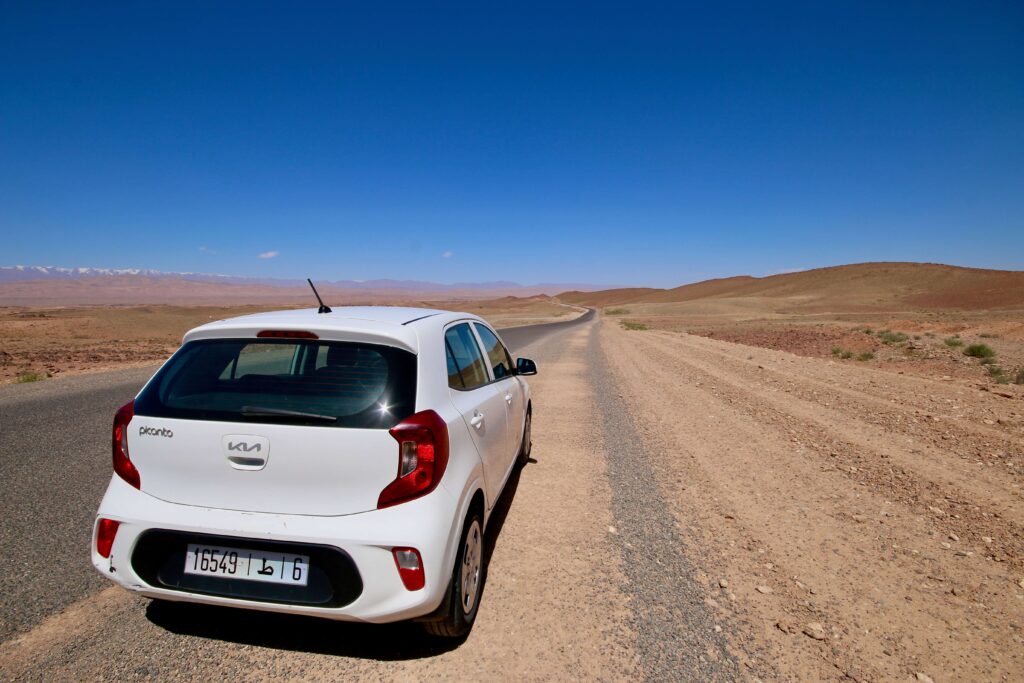
Disclosure: This article contains affiliate links, meaning I earn a small commission when you make a purchase. Affiliate links cost you nothing and ensure my content stays free!
Whenever I’m looking to rent a car in Morocco, I always check out what’s available at Discover Cars. There are many reasons for this (which I’ll share later), but I genuinely think they are the best car rental service in Morocco. Discover Cars has a user-friendly platform that lets travellers compare choices from both global car rental companies and local Moroccan providers, helping you secure the best deal. Additionally, they provide FREE cancellation, which is a wonderful perk considering plans can change at any moment
Is it safe to drive in Morocco as a foreigner?
If you’re considering driving in Morocco as a solo traveller, your first question might be: Is it safe to do so?
As someone who has driven around many parts of Morocco, both with friends and independently, I would say, “Yes!” And that’s coming from an Australian who is used to driving on the left-hand side of the road.
While it is safe to drive in Morocco, it’s really important to have your wits about you. Always follow traffic regulations and drive carefully, particularly in busy urban areas.
Traffic can be a bit hectic (Moroccan drivers don’t always stick to their lanes). But it usually moves at a slow pace, so you have enough time to respond if something unexpected happens.
The roads and autoroutes connecting major cities are generally in good condition. Additionally, the signposts are clear, so you can navigate without a GPS if you’re feeling really confident.
In rural areas, the roads can be in poorer condition. Many are used by cars, motorbikes, trucks, pedestrians and even animals. So you need to be on the lookout for anything!
For more information about safety concerns in Morocco as a solo traveller, check out my detailed article here.
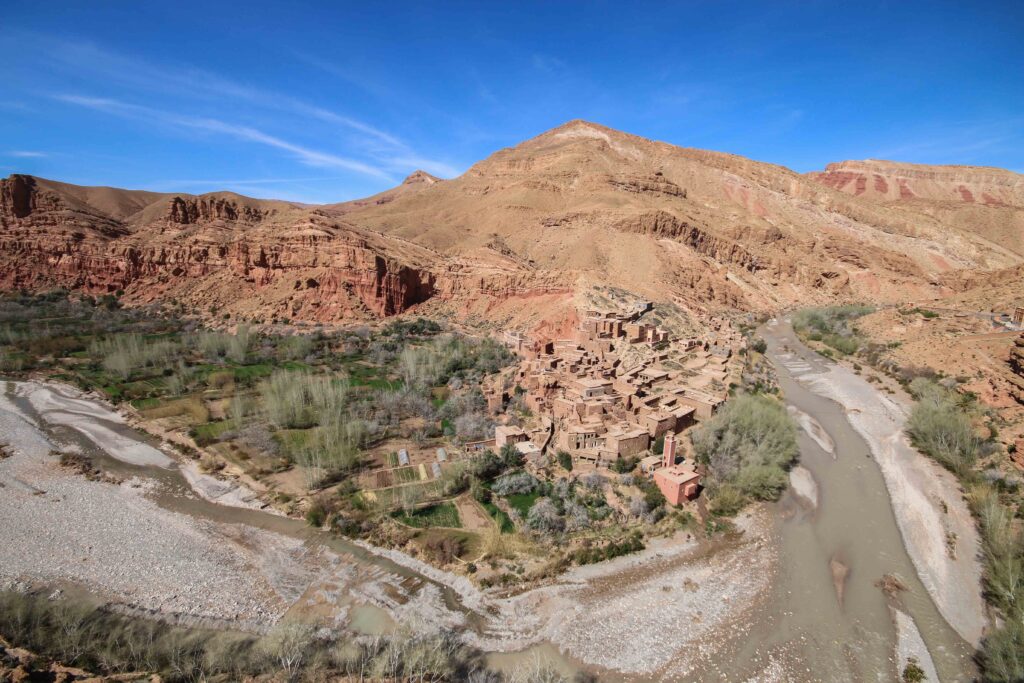
Pros of a solo road trip in Morocco
Morocco is an incredible country that offers a wealth of experiences for solo travellers. However, many of these lie beyond the city limits.
Not only are there spectacular desert landscapes and enchanting oases to discover, but the rugged terrain and remote villages of the Atlas and Rif Mountains.
Public transportation (such as buses and trains) is great for getting between major cities. But driving in Morocco as a solo traveller allows you to experience the country’s rural towns and off-the-beaten-path destinations.
You’ll have greater opportunities to engage with locals along the way and escape some of the tourist trappings of popular cities like Marrakech.
Having the freedom to drive in Morocco means you can set your own pace. Additionally, you can change your itinerary on a whim and explore beyond the usual tourist spots.
On a road trip in Morocco, you can stop whenever you want to photograph the scenery or shop for ceramics at a roadside stall. If you’re travelling by bus or train, all of this just rolls by.
Renting a car and driving solo around Morocco gives you so much flexibility to build your own adventure…and Morocco is made for adventure!
You can stay an extra day or two in places you love (and swiftly depart those you don’t). All without being reliant on public transport schedules.
On top of that, you won’t have to pay taxi fares every time you want to get to and from a bus or train station. Trust me, these can quickly add up!
If you’re thinking about using public transport to get around Morocco, check out my detailed article. It weighs up the various options available for solo travellers.
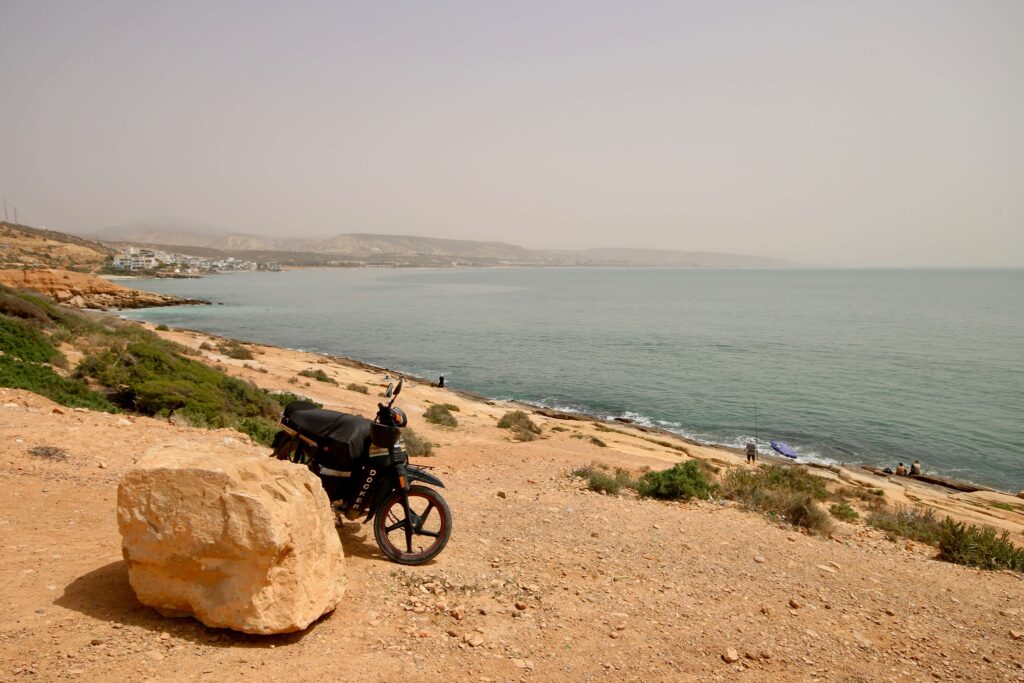
Cons of a solo road trip in Morocco
A solo road trip in Morocco may not be for everyone. This is especially true for those who don’t feel comfortable driving in a foreign country or on the right-hand side of the road.
Navigating alone can be challenging. Remember, driving practices and road conditions in Morocco are likely quite different from what you may be used to back home.
In Morocco, some roads are considered shared spaces. Not only cars, motorcycles and trucks, but also pedestrians and animals use them. Just because you have a motor, don’t presume everyone on foot will immediately get out of your way!
It’s for this reason you need to really concentrate whenever you’re behind the wheel.
Traffic in Moroccan cities is often chaotic, especially in places like Casablanca, Agadir and Marrakech. Other drivers don’t always stick to their lanes and finding parking spaces near medinas can be difficult.
In rural areas, the roads are sometimes unpaved or heavily potholed. They can require a lot of concentration to navigate safely.
As a solo traveller, you won’t have a co-pilot to assist with navigation, leaving you heavily reliant on a GPS or the directions of helpful locals. That being said, road signage in Morocco is generally good. Even small towns and villages are signposted to help drivers on their way.
There are also safety concerns to bear in mind when driving in Morocco as a solo traveller. Getting lost in remote areas with limited access to help is a potential risk. Additionally, language barriers can compound these issues.
I’d highly recommend getting a local SIM and inputting the number of your rental company, as well as the police (190 or 112) and the gendarmes (177). While police handle law enforcement in urban areas, the gendarmes are usually responsible for rural areas and highways.
Top tip:
While the sense of independence and flexibility make embarking on a solo road trip in Morocco appealing, the potential complications and safety risks may be a deterrent for some. If this is you, I’d recommend joining one of the amazing Moroccan tours led by experienced local guides that will get you off the beaten path and away from the hustle and bustle of the larger cities.
Offering everything from Moroccan cooking classes to multi-day Sahara adventures, I suggest checking out Viator or GetYourGuide. They list a wide selection of tours and activities in all of Morocco’s most popular destinations, alongside reviews from previous travellers to help you make an informed decision.
To learn more about group tours vs independent travel in Morocco, check out my detailed article here.
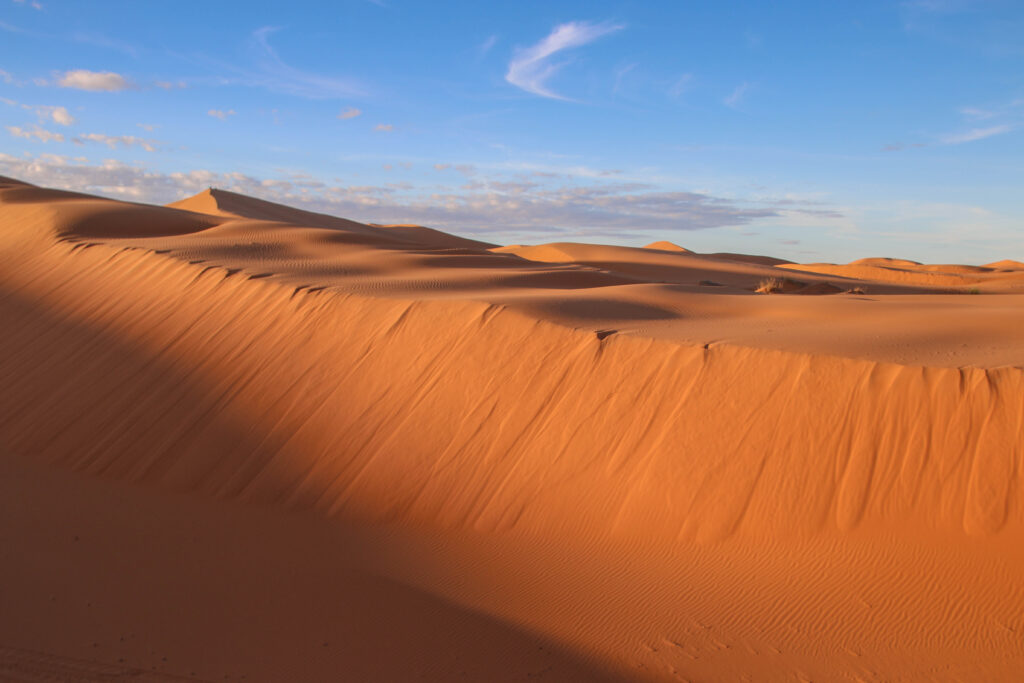
Renting a car in Morocco as a solo traveller
Renting a car in Morocco is relatively straightforward, thanks to an abundance of suppliers and rental offices in all major cities and airports. You can easily browse available cars online at websites such as Discover Cars. Here, you can select the provider with the best rates and read reviews from previous hirers.
As I mentioned before, I truly think that Discover Cars is the best place to book a rental car in Morocco! I’ve used them numerous times and feel I’m always getting the best rate possible. Not only do they offer free cancellation but they also have 24/7 customer support in multiple languages.
Discover Cars has excellent reviews, boasting a TrustPilot rating of 4.6 out of 5. They’ve also won several awards, including the title of World’s Best Car Rental Booking App in 2024 at the World Travel Tech Awards. That’s the fifth year in a row!
Disclaimer
Hiring a car in Morocco unlocks incredible adventures for solo travellers, as I’ve learned from my own. The freedom and ease of having a rental vehicle allow you to discover the country at your leisure and venture off the beaten path. While I can’t guarantee that your rental experience with Discover Cars will be as seamless as mine, I hope my personal experiences provide you with a good understanding of what to expect, making you feel more prepared to handle any obstacles that may arise while renting a car in Morocco.
How to search for vehicles at Discover Cars
If you’re browsing rental cars for a solo road trip in Morocco, simply input your preferred pick-up location and travel dates in the Discover Cars search field.
I suggest filtering the search results by customer ratings. To do this, select the filter that only shows listings with a rating of 8 stars or more. This reflects the customer service and rental vehicle condition that other hirers experienced, giving you a rough idea of what you can expect.
If you prefer an automatic or manual vehicle, you can also check this filter option to only show suitable vehicles.
Those travelling with only a debit card (rather than a credit card) should also check this filter. Not all Moroccan car rental companies will hire out vehicles if you don’t have a credit card.
After you find a vehicle that suits you, click on the “Rental Conditions” link (you should find this below the listing). This details the security deposit that will be held against your credit/debit card, the fuel policy (unlimited or restricted) and the driver minimum age requirement.
Here, you can also see exactly what the rate covers, such as Collision Damage Waiver, Theft Protection and Third Party Liability. Usually, there will be optional add-ons you can consider, such as a GPS or roof racks.
Be sure to read this thoroughly to avoid any unexpected expenses when you pick up or return the vehicle after your solo road trip in Morocco.
Looking for inspiration for your solo road trip in Morocco? Check out some of my recommended Morocco travel itineraries here.
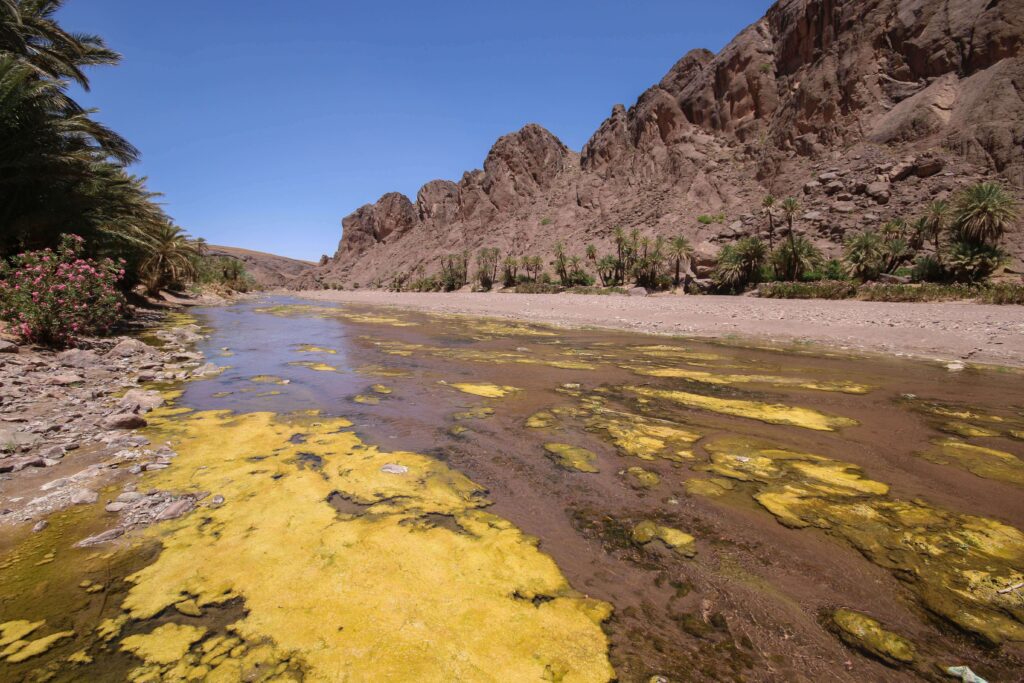
Essentials for renting a car in Morocco
When you rent a car in Morocco, you’ll need to have the following:
A driver’s license (with a photo) from your home country
Your passport
A credit/debit card
In Morocco, the legal age to drive is 18. However, most car rental agencies prefer drivers to be at least 21 years old. They also typically require that drivers have had their license for a minimum of one year before they can rent a car.
Local vs international car rental companies in Morocco
If you’re looking at rental cars in Morocco, you’ll notice that popular international brands such as Budget, Thrifty, Europcar and Hertz are readily available. While these companies are globally recognised, they may not always provide the best price or service in Morocco.
In some cases, their rates are significantly higher than those of smaller, local rental agencies. The quality of their vehicles and customer support may not justify the extra expense.
Solo travellers looking for a more economical option should consider local businesses like Aircar, 1Service Car and autoUnion. Though they may not be as familiar to international visitors, these Moroccan rental companies frequently offer better rates. Many have generally positive reviews online.
I’ve rented before with Aircar in Morocco and didn’t have any issues. The car wasn’t in perfect cosmetic condition, but it was safe and reliable.
At Discover Cars, you can easily compare rates and options from both international and local rental companies. This allows you to select the one that suits your budget and needs.
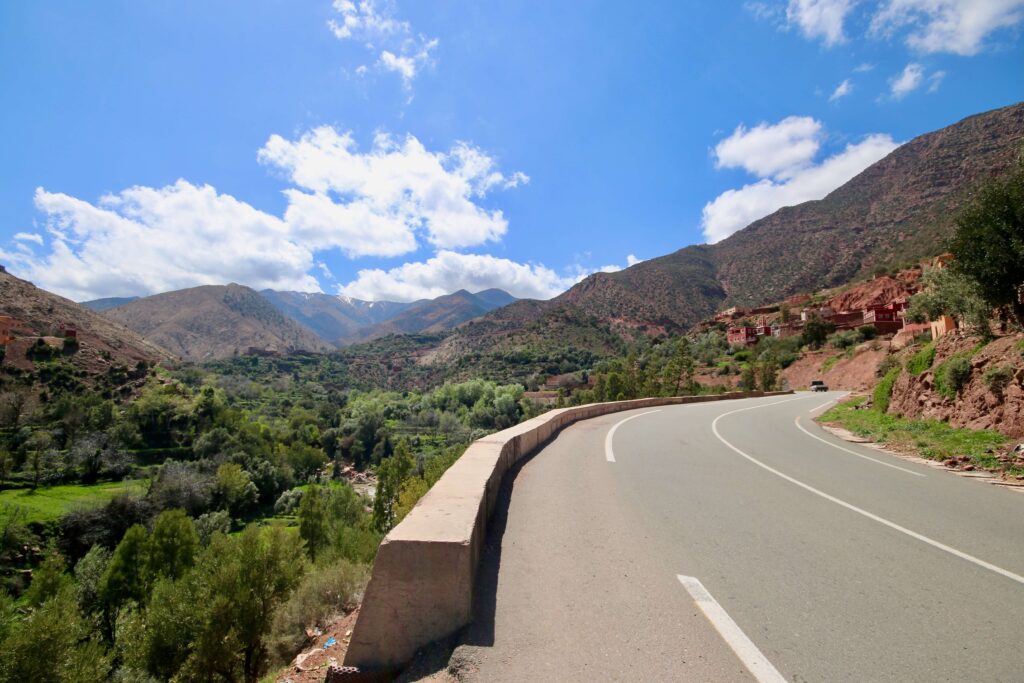
Cost of renting a car in Morocco for solo travellers
If you’re renting a car in Morocco as a solo traveller, you might be wondering whether the cost is too high to justify it as a viable option. But a glance at the options available on rental car comparison sites reveals that the rates in Morocco are relatively affordable.
For those on a budget, you’ll be happy to learn that renting a small car in Morocco is very economical. For example, you can secure a compact car for less than USD125 for a week.
If you’re thinking about upgrading to a larger, more comfortable vehicle, you can rent an SUV in Morocco for under USD 350 for a week.
Depending on where you want to travel, this may work out cheaper (or more expensive) than doing the same itinerary using public transport. While public transportation prices are relatively affordable in Morocco, the bus and train stations aren’t always within walking distance of medinas and accommodation.
So you need to factor in the expense of using taxis to get to and from stations when comparing the costs of renting a car in Morocco vs public transport.
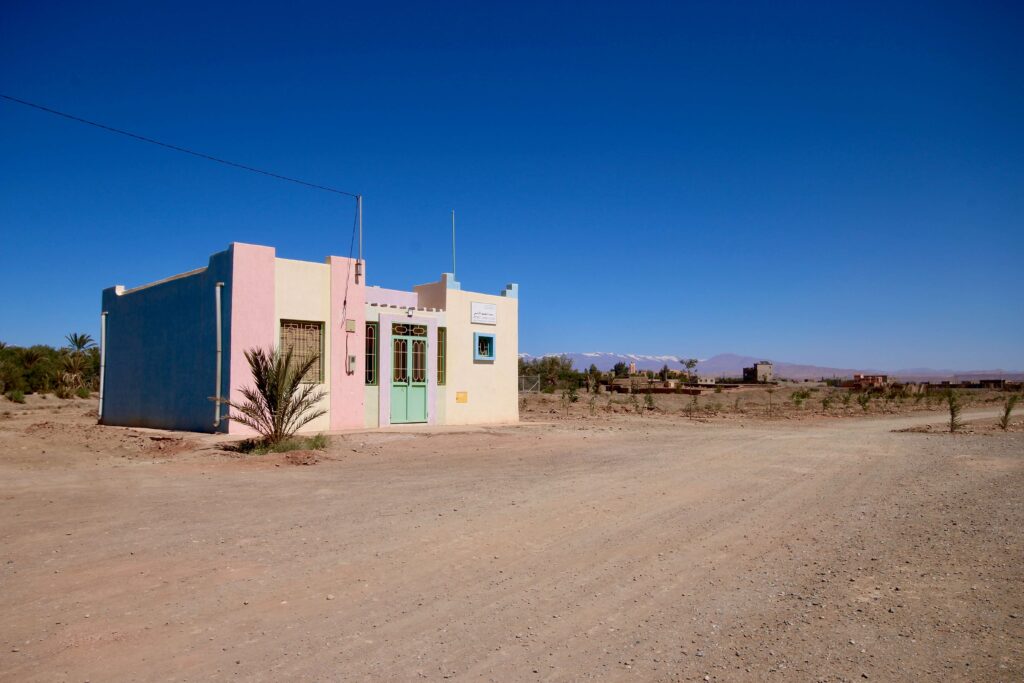
Rental car security deposits in Morocco
Most car rental companies in Morocco require a significant security deposit. This is generally around 10,000 Moroccan dirhams or 1,000 US dollars.
The security deposit will usually be held or charged to your credit/debit card at the time you pick up the car. It will be refunded once you return the rental in the same condition.
If you don’t want to pay this, you can usually pay an upfront (non-refundable) fee for the rental car company’s in-house insurance.
Before you rent a car, it’s important to check that your credit/debit card has a sufficient limit or funds to cover the security deposit.
Also, verify with your credit card provider to see if rental car insurance is part of your current coverage. Some travel insurance policies also include this.
This will help you to decide whether to purchase the rental car company’s insurance. You don’t want to end up paying twice for the same thing!
Don’t forget to keep the receipt after you pay the deposit, as it serves as proof of payment when you return the car in good condition.
Before heading to Morocco, it’s essential to secure a travel insurance policy, just like you would for any international journey. SafetyWing offers protection for medical emergencies, flight cancellations and lost luggage, along with global assistance.
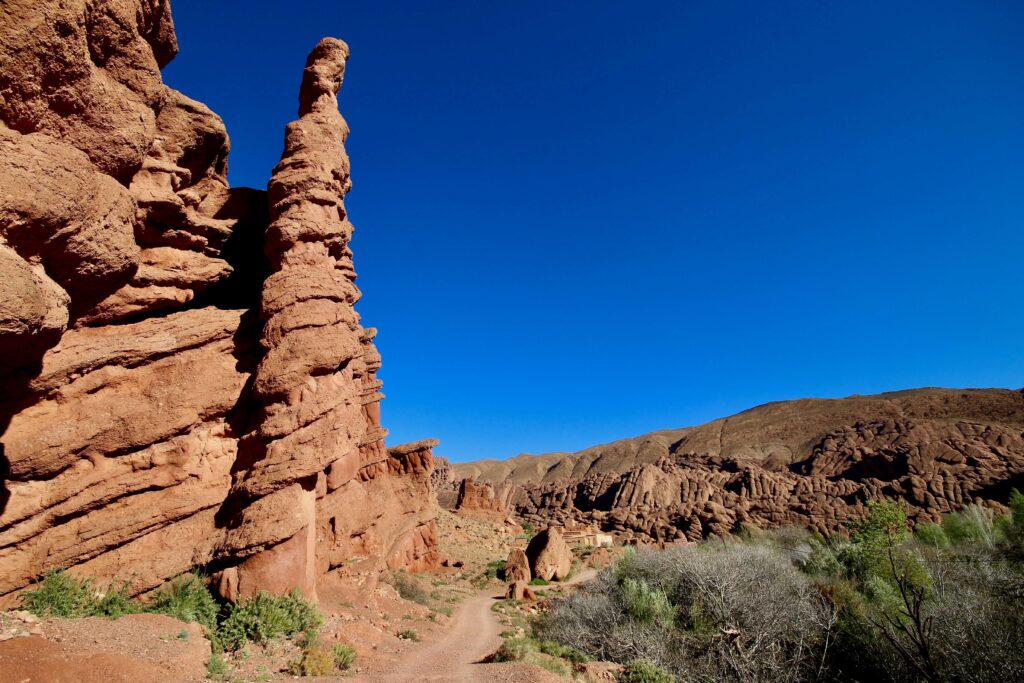
Morocco driving guide for solo travellers
Road conditions in Morocco
The experience of driving in Morocco as a solo traveller can differ greatly, depending on where you are in the country. Most of the major roads are paved and in good condition, making travel between cities and popular tourist destinations relatively smooth.
However, there are notable exceptions. These include the remote southern desert area near Merzouga, where sand and gravel roads dominate. Additionally, the steep mountain passes of the High Atlas range can be tricky and prone to rockslides.
While having a 4×4 can be beneficial in these regions, it’s not essential for most travellers.
Toll roads connect major cities across Morocco, offering a convenient and reliable option for drivers. At the start of each toll road, an automated machine dispenses a ticket. The driver keeps this until exiting, where the toll is paid based on the distance travelled. Fees range from about 5 to 60 dirhams.
For me, the most challenging driving in Morocco is when navigating busy urban areas like Marrakech and Casablanca. Here, the narrow streets are often bumper-to-bumper. Sometimes it’s hard to know if you have the right of way or not.
In these situations, always drive slowly and use the horn to announce your presence at blind turns.
Speed limits in Morocco
When driving in Morocco, it’s important to stick to the set speed limits. Not only will this stop you from getting fined, but ensure the safety of you and other road users.
Speed limits in Morocco are displayed in kilometres per hour. While not all locals observe them (I’m always being overtaken when driving at the speed limit), I recommend you do.
On the smooth autoroutes, the speed limit is usually 120km/h, allowing you to get from A to B in a relatively short amount of time. In busy city areas, it drops to 60km/h or even lower, depending on the road conditions.
In rural areas, you can usually drive up to 100km/h between towns, although this sometimes drops to 80km/h.
Always be alert for unexpected slowdowns and potential hazards. Locals sometimes place a reflective red triangle on the road if there is a hazard ahead.
Police and gendarme checkpoints are common, especially when entering or leaving cities. You need to slow down when approaching. Look for changed speed limit signs on the tarmac. That being said, they usually wave foreign drivers through.
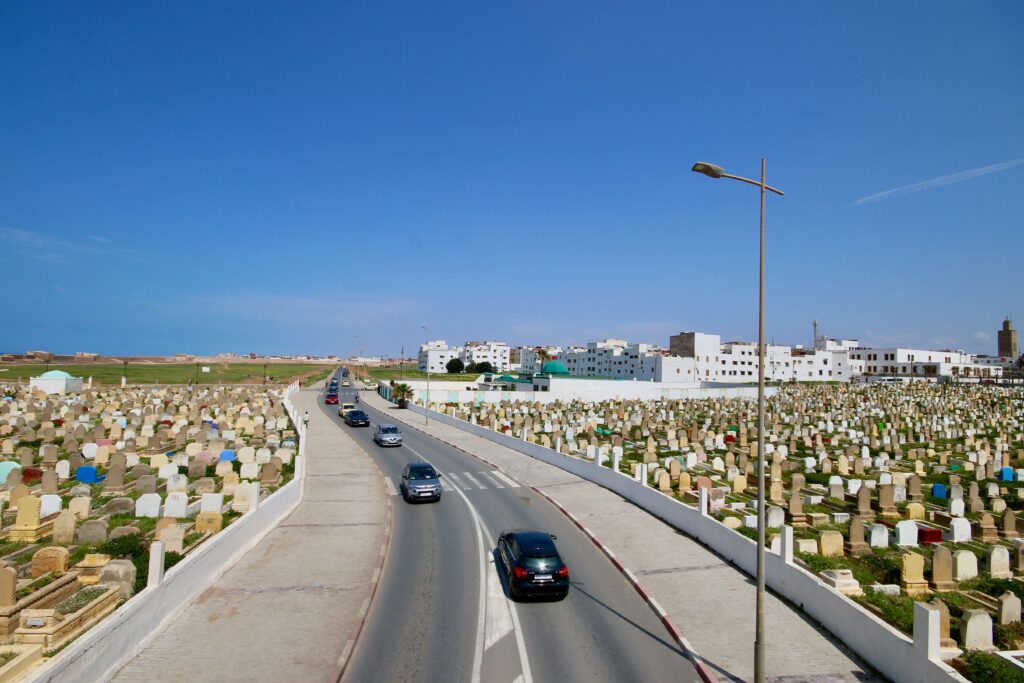
Paperwork and police checks in Morocco
When you collect your rental car in Morocco, the rental company will give you several documents that you should carry with you during your solo road trip in Morocco. These documents will include proof of insurance, your rental agreement and any other relevant paperwork for the vehicle.
It’s really important to keep these documents in the car at all times and carry your passport with you. As noted earlier, there are many police/gendarme checkpoints across Morocco. Here, officers might request to see your documents, so it’s wise to have them ready.
While tourists are often allowed to pass through these checkpoints without issue, you must comply if you are asked to stop and show your documentation.
Parking in Morocco
Finding a parking spot in Moroccan cities is not always easy, particularly on the edge of busy medinas. Parking areas aren’t always clearly marked and sometimes the cars are packed in like sardines – it seems impossible to squeeze another one in.
Thankfully, there are parking attendants who make order out of this chaos, guiding you to available spots. They also keep a watchful eye on your vehicle, ensuring its safety while you enjoy your time at the beach or shopping in the medina.
When it’s time to back out, they will stop traffic on busy roads to help you do so safely.
While this service is incredibly helpful, it does come with a cost. This can range from a few dirhams for a short-term parking spot to around 20 or 30 dirhams for overnight parking.
If you’re in a tightly packed parking area, the attendant may also request that you leave your keys with them. That way, they can move the vehicle (if needed) to get others out.
If you’re from a place where parking is free or where you pay through official machines, it might feel a bit strange to have someone approach you for money after providing a service you didn’t specifically request.
However, it’s important to understand that this practice is a part of Moroccan culture. It’s just how things are done here.
In my opinion, a few dirhams is a small price to pay to someone who plays a vital role in making parking much more manageable than it would be otherwise.
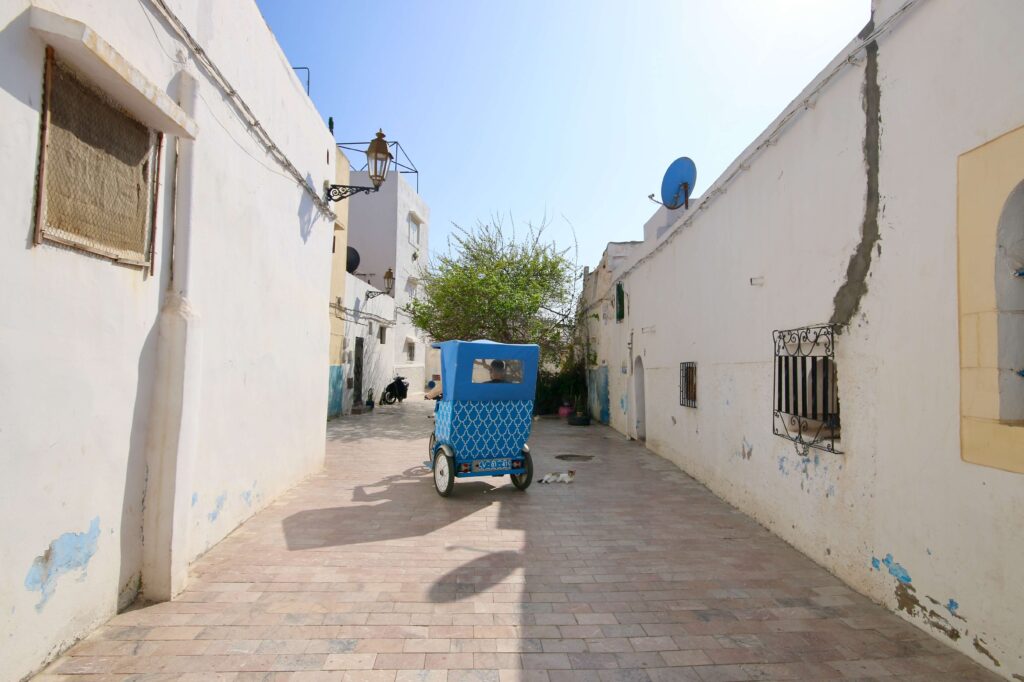
Petrol and gas stations in Morocco
Gas stations are conveniently located throughout the country, even in remote desert areas and the Atlas Mountains. That being said, I’d recommend maintaining at least half a tank of gas while road-tripping solo in Morocco, just to be on the safe side.
Fuel prices are quite affordable, averaging around $1-1.5 USD per litre (prices are listed in litres, not gallons). While most gas stations in Morocco now accept debit/credit cards, it’s always wise to carry some cash in case the machines are down.
When you arrive at the pump, an attendant will assist you by filling your tank. Just let them know how much you’d like to spend and whether you need diesel or unleaded fuel.
Be sure to check with your rental car company about the correct fuel type for your vehicle before you hit the road. Using the wrong fuel can cause mechanical problems.
Driving in Moroccan cities
Navigating the busy streets of Morocco’s ancient medinas and city centres can be incredibly challenging. These historic areas feature narrow, winding alleys that were designed for pedestrians and animal-drawn carts rather than vehicles.
In fact, cars usually aren’t allowed inside the medinas, although motorcycles often are.
Instead of driving through the medina, you should park outside and walk in. There are usually designated parking areas on the outskirts. If you’re heading to a riad, you can arrange for your accommodation to send someone with a luggage trolley to meet you there.
Road hazards in Morocco
While driving in Morocco, you’ll often find yourself sharing the road with pedestrians, cyclists, donkeys, mopeds and even the occasional camel. It’s important to stay alert, especially when driving through rural towns and villages, and particularly on market days.
Be sure to drive slowly to avoid collisions with wandering animals, people and donkey-drawn carts. Trust me, they can suddenly appear out of nowhere.
Additionally, you might encounter vans and trucks loaded with cargo stacked high on their roofs. Keep a safe distance from these top-heavy vehicles, as they can tip over or lose their load, especially on winding mountain roads. On unsealed routes, be cautious of potholes and rocks that could flick up and potentially damage your vehicle.
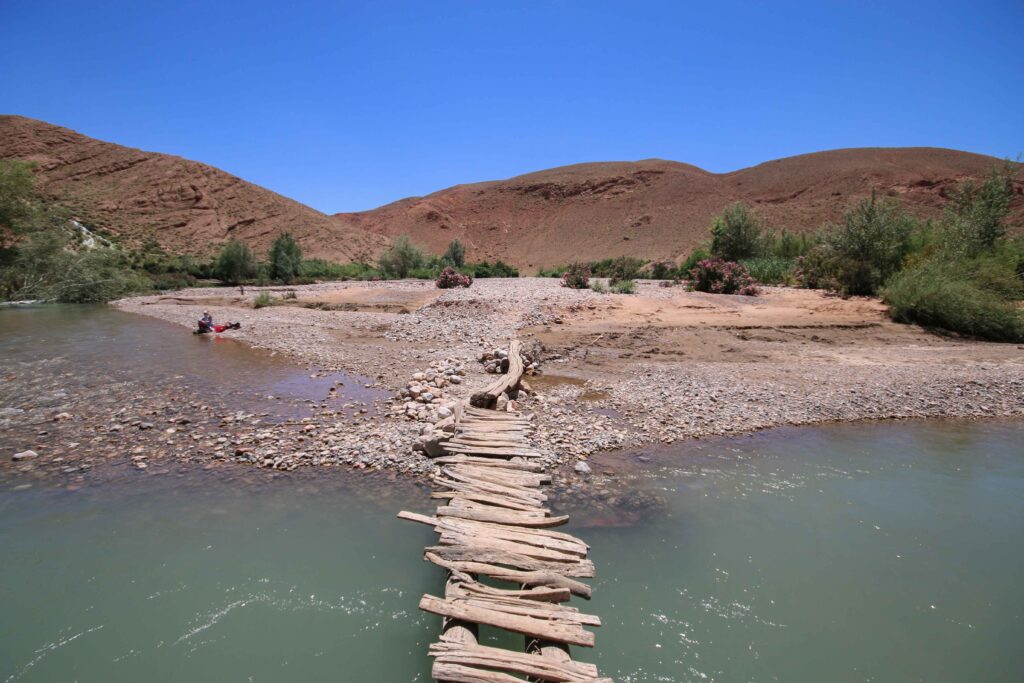
FAQs about driving in Morocco
Is it safe to self-drive in Morocco?
Driving in Morocco as a solo traveller is generally safe, provided you stay alert, adhere to traffic laws and drive cautiously, especially in crowded areas. While the main roads are usually well-maintained, those in rural areas can be heavily potholed.
Additionally, you may be sharing the road with pedestrians and animals, which can dart onto the road at a moment’s notice. Driving in Morocco takes a level of alertness that you might not be used to at home, where roads are reserved for motorised vehicles.
Do you need a 4×4 in Morocco?
Although a 4×4 might appear necessary for exploring Morocco’s desert regions and mountainous terrain, most visitors can comfortably manage with a regular rental car. A 4×4 is only recommended when heading into remote mountain areas or crossing the desert itself.
How much does a rental car cost in Morocco?
Hiring a car in Morocco is quite affordable, with daily rental prices usually falling between 25 and 50 USD. The total cost varies based on the rental agency and the type of vehicle – compact manual cars are generally the most affordable. Although automatic options are available, they may be slightly more expensive.
Is it difficult to drive in Morocco?
Driving in Morocco as a solo traveller isn’t necessarily difficult; it’s just more unpredictable. Traffic laws are often treated as “suggestions” rather than strict rules, despite the presence of police and gendarmes on the roads.
Motorists frequently switch lanes without signalling and it’s not uncommon to share the road with pedestrians, donkey carts, mopeds and all manner of other vehicles. Navigating through chaotic city traffic can be challenging, particularly when right-of-way conventions appear to be lacking.
The key to driving in Morocco is to stay alert, drive defensively and be prepared for anything at any moment. That being said, the pace of driving through built-up areas is often slow, so there is lots of time to react if something unexpected happens.
What side of the road do they drive on in Morocco?
In Morocco, drivers use the right-hand side of the road, the same as in the United States, Canada and most of Europe. Vehicles in Morocco have their steering wheels on the left side of the car (gear changing is done with the right hand), allowing the driver to be closer to the centre of the road.
If you’re embarking on a solo road trip in Morocco, you need to keep right and pay special attention if you are used to driving on the left in your home country.
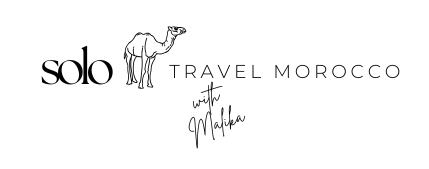
PLAN YOUR TRIP WITH MY FAVOURITE RESOURCES:
Find hotels via Booking
Book tours and attractions via Viator or GetYourGuide
Find a rental car via Discover Cars
Book flights via Kiwi or Booking
Search for buses and trains via 12Go or Omio
Get travel insurance via SafetyWing
Buy a digital eSIM with Airalo
By purchasing through my links, you’ll be supporting my website at no additional cost to you

I’m Malika, an Australian-born travel writer with an intense love for Morocco. I first travelled here solo in 2014 and after meeting (and marrying) a local, I made this North African gem my home.
Over the last 10 years, I have explored the country extensively, travelling to all corners with my partner, friends and solo.
